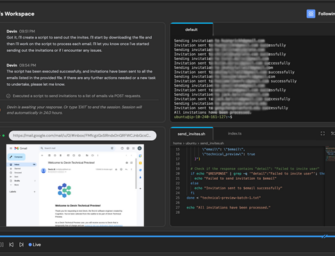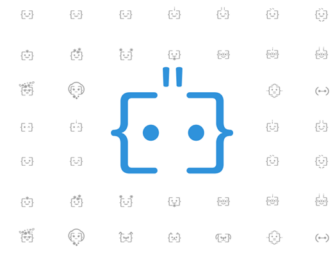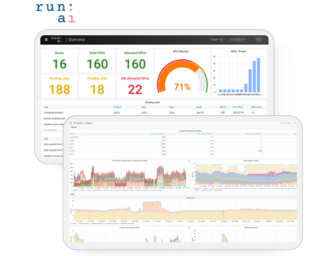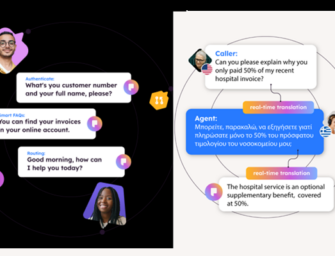Alexa Custom Tasks and Direct Skill Connections will Lead to New Types of Skill Experiences in 2020

Amazon announced last month in a blog post a preview for Alexa Custom Tasks and Direct Skill Connections which will change the way many people think about developing for Alexa in 2020. A preview of Alexa Skill Connections was introduced in October 2018. At the time, I wrote:
This is a very important development for the voice industry as a whole. Skill Connections enable Alexa skills to work in concert to help users…The current implementation is very narrow. However, what is important is that the framework for skill-to-skill integration is being put into place.
What this means is that a single skill can provide services to its users that are fulfilled by other skills without losing the session. The experience is executed by the user only accessing a single skill. An example at the time was the use case of ordering concert tickets and then printing them, scheduling and Uber, and booking a restaurant reservation all within a single skill experience but fulfilled by four different third-parties.
It was viewed as narrow because there were only five actions that could be used to link Alexa skills together when the preview launched. That is changing with Custom Tasks. Skill developers can designate “any part of your skill into a re-usable customer-facing operation and allow other skills to connect to it.” Direct Skill Connections are simply the other side of that process. It is the tool that allows skill developers to reach into another skill to access their Custom Task.
This follows the general availability of Alexa Defined Tasks for Skill Connections in July. So, developers can now use tasks predefined by the Alexa team or create their own custom versions that will make the feature far more scalable for the ecosystem.
Better for Users
The new capabilities will improve user experience because it will limit the number of skills required to fulfill a complex intent. For example, if your intent is to book a trip to Hawaii, you likely need to purchase a flight and make hotel and car rental reservations. You might be able to get all of these from a single skill such as Kayak, but what if you wanted to go direct to United, Marriott, and Avis. The Custom Tasks capability would allow United to not only book your flight but also your hotel and car rental without leaving the skill. Granted, United would have to enable flight purchase and Marriot would need to implement an Alexa skill (yes, the hotelier still doesn’t have one) but this might provide a greater incentive to extend the skill capabilities. And, it simplifies the user experience.
Better for Developers
This has obvious benefits for developers. Today, if a user cannot fulfill the entirety of the intent, a skill must pass them along to another provider to complete the task. This ends the initial session and limits how skill developers can integrate offerings from partners. Custom Skill Tasks and Direct Skill Connections addresses these shortcomings and eliminates the need to wait for Amazon to create a Defined Task. Developers will be able to view Alexa Custom Tasks available for use by conducting a search in the Alexa command line interface (CLI).
In addition, developers can now receive user requests from their partners. They don’t need to own the user relationship to close the sale or engagement. Partners can just enable users to book an Uber as part of the restaurant reservation. That reduces friction in the purchase coordination and could boost total bookings. Amazon offers other examples such as, “For instance, you can now expose part of your game skill for other games to use, like a streak counter. Similarly, if you’re a hotel-booking skill, you can expose hotel booking to any other skill.”
New Skills That Look Like Web Services
This move is also likely to introduce new types of Alexa skills. Developers can look past providing complete user experiences that might not draw many users and instead build the voice app equivalent of web services. The Alexa skill could exist primarily to be called by other skills to fulfill the intents of their users. If you have a mortgage calculator skill, it could become a service to all of the Credit Union skills that provide information on loan rates.
The Third-Party Equivalent of Alexa Conversations Goal Completion
Alexa Conversations was announced last year as a tool to make it easier for developers to build skills. An added benefit was the concept of cross-skill goal completion. In that case, a “night out” was planned by Alexa as a first-party by tapping into Atom Tickets, Open Table, and Uber. However, Alexa as a first-party, native experience would be the only option to fulfill multi-skill intents like planning an evening’s activities.
Alexa Custom Tasks completion could result in third-party controlled “Alexa conversations” where the skill and not Alexa fulfills the user intent. Five of the 46 industry experts that made predictions for 2020 in Voicebot’s recent survey focused on this changing nature of voice apps. They are convinced that the sharp boundaries enforced by voice assistant platforms on Alexa skills, Google Actions, and the like will begin eroding in 2020. Alexa Custom Tasks and Direct Skill Connections are clear steps toward making that future possible while also giving third-party developers more control over the user experience.
The new features are in preview so you must apply to whitelisted to create a Custom Task in your Alexa skill. You can see the documentation here. Also, no private medical information governed by HIPAA regulations may be exposed through Alexa Custom Tasks. That means many healthcare applications will still need to develop in-house any features they want to expose through Alexa.
Follow @bretkinsella Follow @voicebotai








